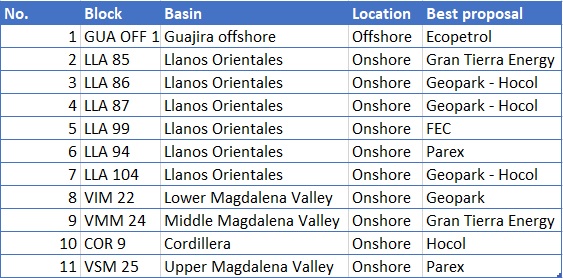The National Environmental Licensing Agency (ANLA) made 49 requests to Frontera Energy’s (TSE: FEC) project in Puerto Gaitán (Meta). Here are the details.
The Extractive Industries Transparency Initiative (EITI), a global standard that promotes the open and responsible management of oil, gas and mineral resources worldwide, gave an award to the Colombian extractive sector.
The government has not made a final decision on fracking, but authorities already have projections of the possible benefits that this technique can bring to the country.
The National Hydrocarbons Agency (ANH) and Ecopetrol (NYSE:EC) are working to launch a new oil round to reactivate production in small fields that still have crude.
Here is how Colombia is looking to diversify its exports, now that its energy self-sufficiency is at stake.
Casanare’s government announced that 19 of the department’s municipalities will have access to a better energy service, thanks to royalties’ resources. These and other stories in our periodic Royalties summary.

The National Hydrocarbons Agency’s (CNH) first “window” of the Permanent Competitive Process (PPAA) took place in Bogotá. The entity published the list of the best proposals it received.
Moody’s hosted the Inside Latam 2019 forum, where industry experts spoke about their concerns for the Colombian oil industry in the medium and long term. Here are the details.
The National Environmental Licensing Agency (ANLA) and the Colombian Geological Service (SGC) spoke about their most recent cooperation initiative: The Information Integration Engine.
The extractive sector had moments of great uncertainty due to the boom of popular referendums against its activities in Colombia. Guillermo Reyes, expert in territorial issues, spoke about this problem and the municipalities ability to make decisions on this issue.